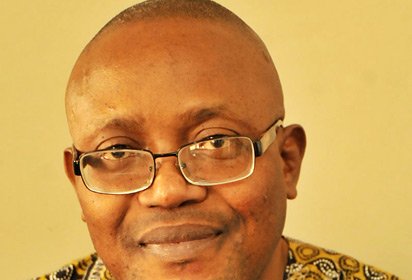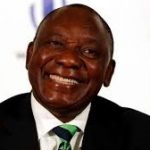Dancing on the edge of the Cliff, by Owei Lakemfa
African News, Articles/Opinion, Featured Contributors/Columnists, Latest Headlines Tuesday, June 7th, 2016
BALTIMORE, MD (AFRICAN EXAMINER) – I visited Vienna, Austria some years ago. After five days of going round the city, it occurred to me that I had not come across a single policeman. Yet everything seemed orderly including traffic. I raised my observation with a resident whose acquaintance I had made. She laughed and pointed at the pedestrian crossing and said “Try a few times to cross the road without waiting for the green light, and you will discover that some of the people you pass on the streets, are policemen.”
I felt intrigued. I also recalled that in London, while policemen were visible, they hardly carried guns. But back home in Nigeria, the sight of armed policemen was not only common, but they also set up road blocks on busy streets doing ‘stop-and-search’ Worse still, is the common sight of military men, some of them in camouflage.
I had thought that we will strive for a country where the sight of guns will be rare. But when in 2012, I visited Adamawa State, I began to have serious doubts. As I moved towards Larmurde, there were ill clad youths on horseback with Kalashnikov slung across their backs. They rode furiously both ways. I was told they were out, scouting for herdsmen who frequently invaded the communities, most times, by crossing from the Benue River.
I have seen video clips and photographs of people slaughtered in Agatu, and sometimes, I am unable to sleep as I continue playing them back in my mind. Same for the Enugu massacre. It appears violence rules our lives. It reminds me of the title of Malian writer, Yambo Ouologuem’s 1968 novel; BOUND TO VIOLENCE.
The sense of siege which many have, seems to colour the reaction of otherwise intelligent people to issues. For instance, I read that the Lagos State Government intends to relocate the Mile 12 Market in Ketu, Lagos to the outskirts of the mega city. Some of the reasons adduced include the fact that the present location causes a lot of traffic jam in the area given the high patronage, and that the volume of trade had outgrown the present location. This may be partly responsible for the fierce competition for space in the market which had led to clashes. Some of these, sometimes assume ethnic colouration.
But Senator Rabiu Musa Kwankwaso, former Kano State Governor travelled to Lagos to denounce the relocation move which he described as “unfair and unacceptable” He claimed that the plan amounted to witch-hunting Hausas who he claimed dominate the market. He warned Lagos State Governor Akinwunmi Ambode that if he went ahead with the relocation, the existing cordial relationship between Hausas and Yorubas would be put in jeopardy.
First, it would have been expected that a former governor would be conscious of the security implications of his actions and utterances. That rather than address the Hausas in Agege, Lagos and make public threats, he should have visited Governor Ambode and privately express his concerns. This would have been better than the open incitement of a part of the Lagos populace. Secondly, he did not address the reasons for the planned allocation, and it is presumptuous of him to assume that he knows what is best for Lagos State better than its governor or the collective wisdom of Lagosians which was tapped into before the relocation decision was made. Again, Kwankwaso was presumptuous when he claimed that most of the traders in Mile 12 Market are Hausas. I once lived a walking distance from the market; I am still familiar with it, and I know the Senator is uninformed on this. Mile 12 Market is an international one patronized by all Nigerian groups and traders from as far as Ghana.
In relocating the market, I have not read anywhere that the State Government intends to exclude or marginalize any group. The Kwankwaso theatrical performance in Lagos, is an example of how our elites complicate matters or sow discord rather than proffer solution. We all seem to think for ourselves, and our assumed enclaves only, rather than for our country. Even in our claims of championing our individual group interests, the emphasis is not on eradicating poverty and hunger amongst them. The thoughts and scheming is not with the objective of wiping off the tears of hungry babies and dejected mothers. It is not to provide free education, jobs or mass housing. It is always to secure private political and economic advantage.
For one year now, millions of otherwise educated, and brilliant Nigerians have been busy in the unproductive venture of engaging themselves in internet wars. They are ranged as the armies of the “Wailers” who uncritically, support the former administration, and the “Hailers” who blindly follow the current administration. In this stupid unproductive ‘war’ no prisoners are taken and truth is a common casualty. Such people are not interested in the tragedy the country is witnessing where 911,483 youths apply for 10,000 placements in the Police Force. This means that at the end of the exercise, 901, 483 will be unsuccessful and remain unemployed.
I have sometimes wondered what would have happened if we took a different decision on certain matters. For instance, if Boko Haram founder, Mohammed Yusuf, his father-in-law, Baa Fugu Mohammed, and financier, Alhaji Buji Foi had not been extra judicially executed, would the remnants have fled, trained militarily including outside the country, re-grouped and launched the offensive it sustained for years? If we had allowed pro-Biafra agitators to protest on May 30 even if they disrupted economic activities, would we not have saved some fifty lives? If President Yar’Adua had not proclaimed amnesty in 2009, would we not have been poorer?
Here we are dancing on the edge of the cliff with violence wracking parts of the country and criminality, especially kidnapping and cultism taking firm roots. There is need for a rethink; it is not a matter of who is to blame, but how we can pull together for a better life. We need to build or reinforce non-partisan Pan-Nigeria movements like those of students, labour, traders, youth, women and intellectuals. We can’t go on this way.
Related Posts
Short URL: https://www.africanexaminer.com/?p=33379






















